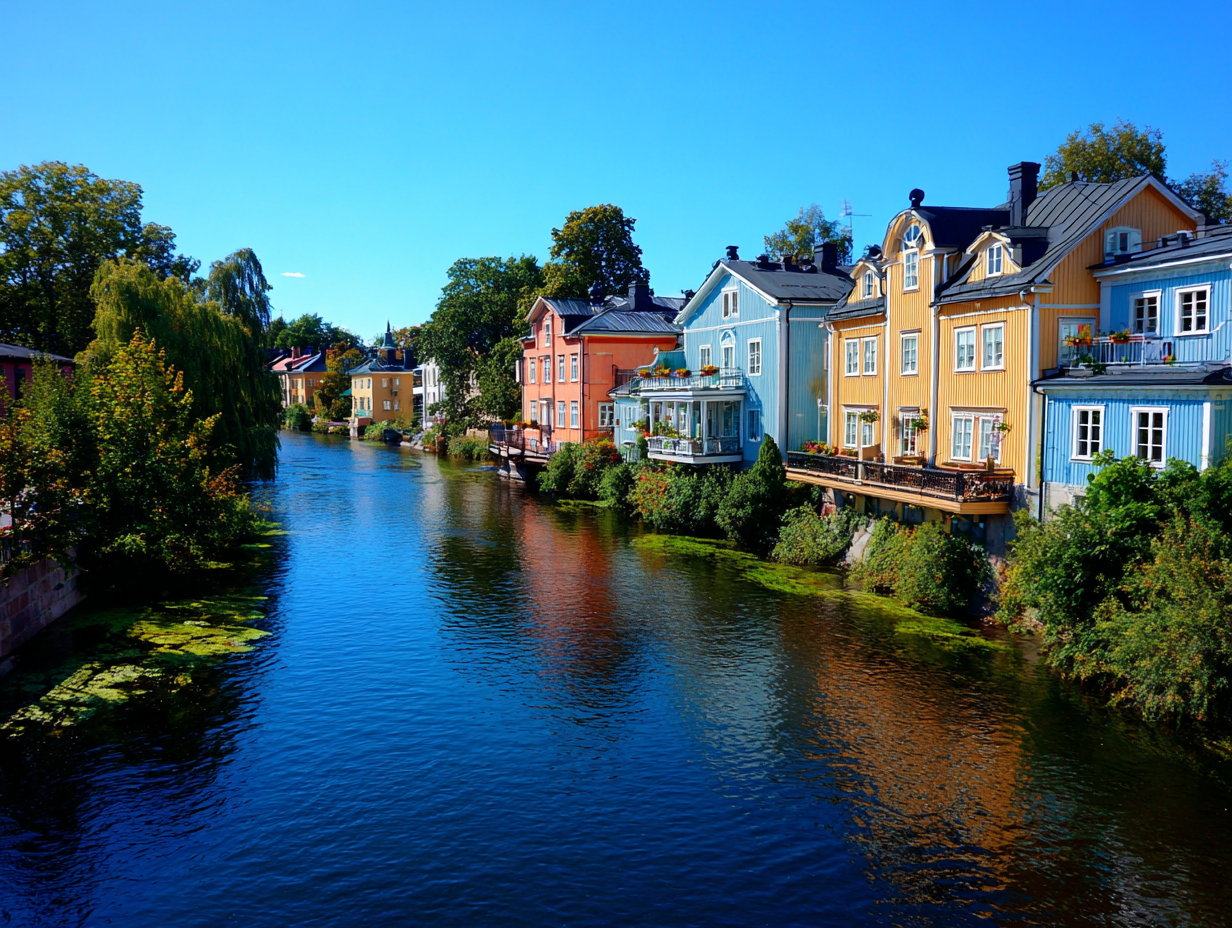The Environmental Performance Index (EPI), published biennially by Yale University’s Center for Environmental Law & Policy and Columbia University’s Center for International Earth Science Information Network, ranks 180 countries based on 58 performance indicators across 11 issue categories. These categories cover climate change mitigation, air quality, sanitation, biodiversity, waste management, and more. The 2024 EPI focuses on progress toward UN Sustainable Development Goals, the Paris Agreement, and biodiversity targets like the 30×30 goal. Scores range from 0 (worst) to 100 (best), with higher scores indicating stronger environmental performance.
Estonia
Estonia (EPI Score: 75.1), tops the 2024 EPI, a historic first for an Eastern European country. Estonia finds itself on the top for the following reasons: 59 percent reduction in greenhouse gas (GHG) emissions since 1990, high in air quality, and biodiversity protection, with 23 percent of its land and 18 percent of its marine areas protected.
Luxembourg
Luxembourg (EPI Score: 75.0), ranks second due to exceptional performance in environmental health, particularly water resources and sanitation. Don’t get fooled by its size, its compact size allows efficient implementation of green policies like clean water infrastructure and waste management. Luxembourg protects 55 percent of its land for biodiversity, among the highest in Europe.
Germany
Germany (EPI Score: 74.5), secures third place with strong air quality and waste management systems. Germany gets over 40 percent of electricity from wind, solar, and biomass. Germany excels in environmental governance as well. Germany’s protected areas cover 37 percent of land.
Finland
Finland (EPI Score: 73.8), earns its spot with perfect scores in sanitation and heavy metals control. The country gets its energy from a mix of hydropower, wind, biofuels, and nuclear power. Finland’s forests, which covers 73 percent of land area, are sustainably managed.
United Kingdom
The United Kingdom (EPI Score: 72.7) ranks fifth. It excels in marine protection with over 30 percent of ocean territory fully protected. The UK scores well in air quality and waste management, with robust recycling systems.
Sweden
Sweden (EPI Score: 72.7), shares the fifth-place with the UK. Sweden’s forest management is world-class, with 69 percent of land forested and sustainably harvested. Sweden scores highly in fisheries sustainability and air quality. The country gets its energy from renewable sources like hydropower and wind.
Norway
Norway (EPI Score: 72.7), known for its fjords and natural beauty, ranks seventh with leadership in heavy metals control and wastewater treatment. Its extensive protected areas include 17 percent of land and 8 percent of seas). Norway’s electric vehicle adoption is the highest in the world.
Austria
Austria’s eighth-place ranking (EPI Score: 71.1) is due to its impressive biodiversity and habitat protection. The country excels in air pollution mitigation, and its renewable energy share exceeds 70 percent. Austria’s waste management and recycling systems are top-tier as well.
Switzerland
Switzerland (EPI Score: 70.9), nestled in the Alps, ranks ninth with outstanding waste management and drinking water quality. Its biodiversity efforts protect 14 percent of its land, focusing on alpine ecosystems and species like the ibex. Switzerland gets its energy from a mix of hydropower, nuclear, and solar. Switzerland is also famous for its excellent air quality.
Denmark
Denmark (EPI Score: 70.5) excels in renewable energy, with wind power generating over 50 percent of electricity. Denmark’s air quality and sanitation scores are near-perfect, and its biodiversity efforts protect 15 percent of land and 8 percent of seas.


